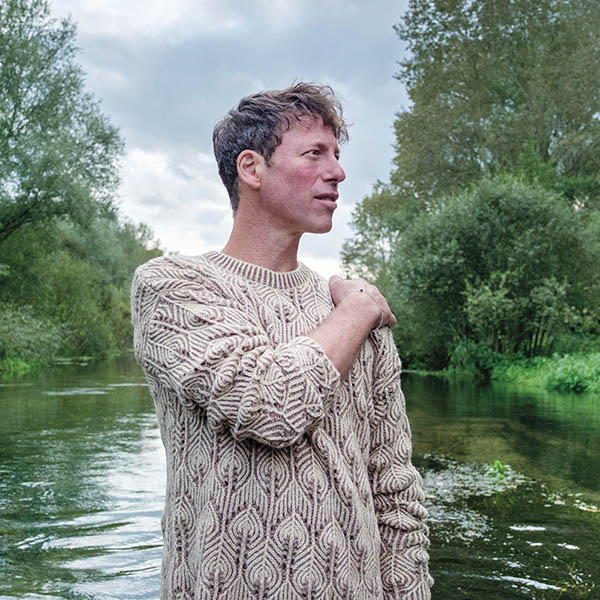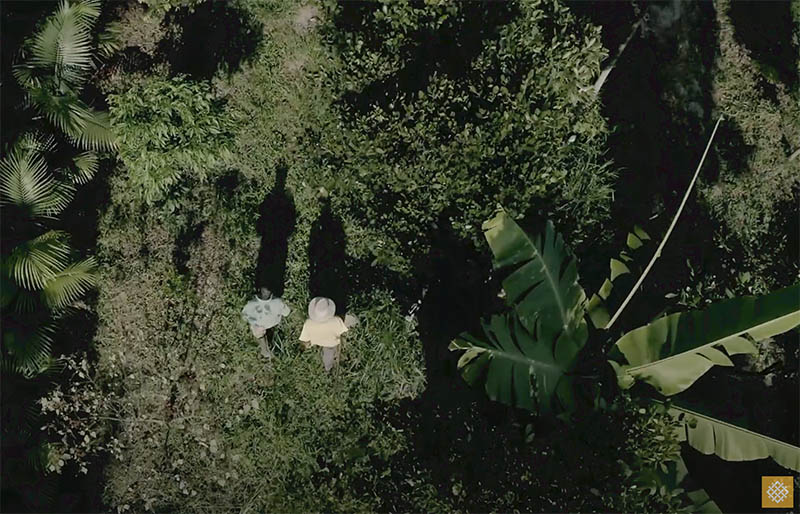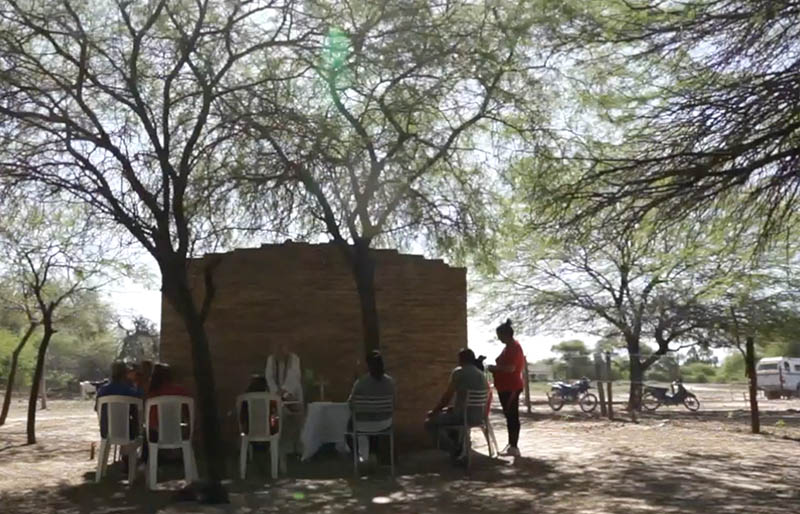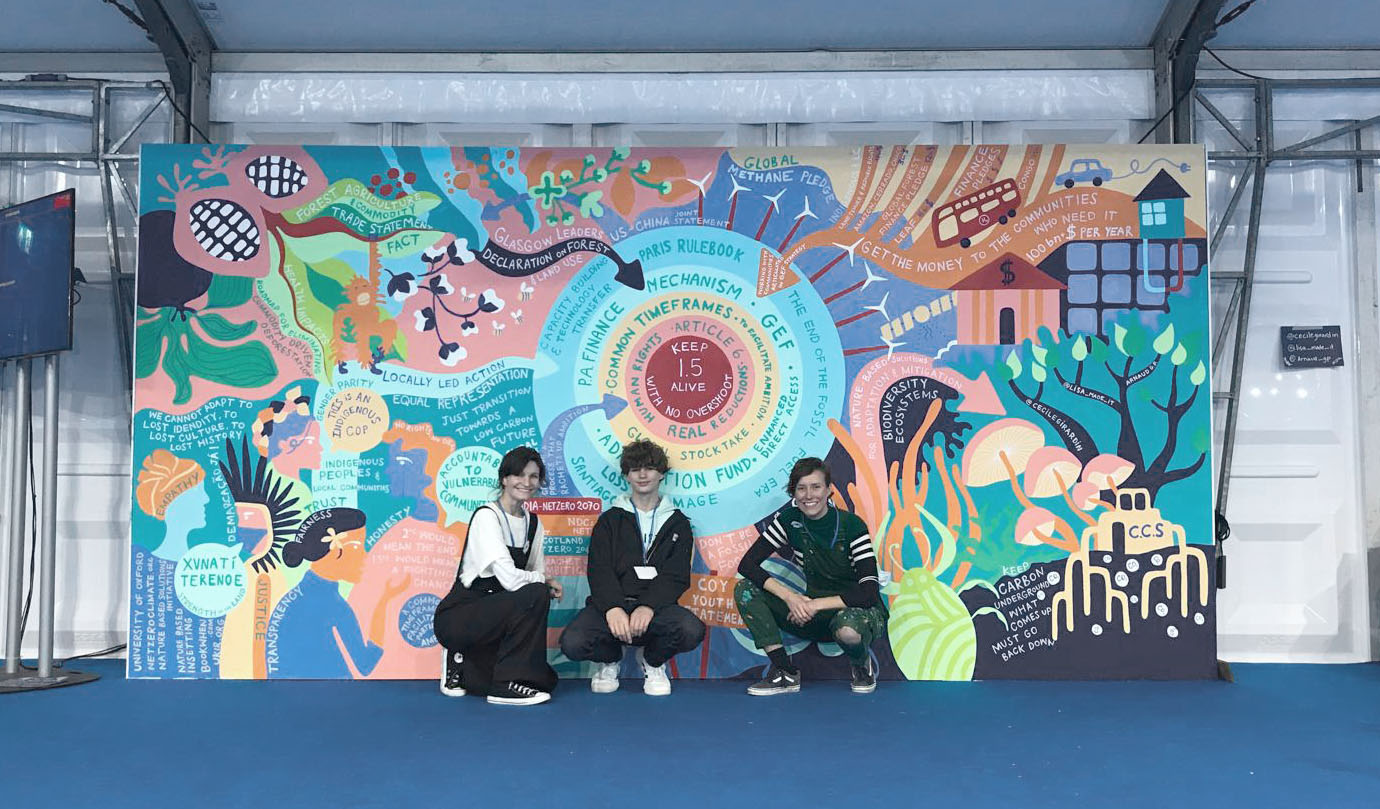
Cultural Programme
The cultural and ceremonial programme at the NbS Conference 2024 conference has been co-created and co-sponsored with Ostara, an emerging movement helping restore our relationship with nature, challenging our profound disconnection with the earth, ourselves and each other and creating spaces for collective thinking and dreaming.
Some elements of the programme are being created and led by wisdom keepers, others by local or Indigenous artists from different parts of the world.
This is the first time that a mainstream nature-based solutions conference has hosted a cultural and ceremonial programme alongside the main academic conference. It directly addresses a deeper recognition that we humans are an intricately interwoven part of a beautiful web of life, that we need to honour in the way our ancestors did, breaking down the sense that, in talking about “nature”, we are talking about something outside ourselves. By creating ceremonial spaces, opportunities to slow down and connect with ourselves and remember the awe and beauty of the world around us, we hope to:
- Give delegates an opportunity to come together as a community, to hold intention for the discussions and to reflect deeply on the different themes of the conference. These range from how we better value nature as our life support system to how we mend our broken relationship with nature and we weave together different knowledge systems to enable system change.
- Remind delegates of the beauty of the web of life on this earth and enable them to reconnect with the elements which can get lost in academic discussions
- Give delegates a chance to slow down and reconnect with themselves during the week
- Create the mental space for delegates to expand their imagination as to the opportunities for transformative decision-making
- Instil a sense of place and a chance to connect to the land where the conference is being held when our days are longest at the summer solstice.
As much of the cultural programme as possible will be filmed and relayed to our online delegates, including live-streaming of the musical performances on Wednesday evening.
Who is Ostara?
Ostara inspires, nurtures and connects ideas and organisations to co-create a thriving, joyful future in service to the web of life. The collective is being launched at the conference on the Summer Solstice, 20th June. As well as supporting and co-creating this cultural programme, Ostara has also jointly organised the third day of the conference which is being chaired by Justin Adams, its director. This day will include sessions exploring how we must deepen our profound interconnectedness with nature to drive positive change and how we can positively reimagine and redesign a wellbeing nature-based economy.

Ceremonies
(18-20th June)

The entire conference will be embedded within a ceremony, led by Mindahi Bastida, a caretaker of the traditions of the Otomi-Toltec peoples of modern-day Mexico. An opening ceremony will encourage all delegates to set deep intentions for the conference, and a closing ceremony, on the summer solstice, will invite them to take intentions back away with them. Water (universal symbol of regeneration) and fire (holding intention) will be at the heart of this ceremony and a flame will remain alight throughout the conference including overnight, tended by firekeepers.
Water Pilgrimage
(17 June)
Chris Park will lead a deep journey into Oxford’s springs, wells and rives, exploring water’s crucial role in Oxford’s emergence as a global centre of imagination. Chris’s stories and wisdom will be interwoven with knowledge from indigenous elders visiting from Mexico, Chile and Hawaii, producing a magical journey that honours the role water plays to all life. There will be capacity for a maximum of 50 pilgrims to join so please register here early.
Please note that this event is not included in your Conference ticket and tickets must be bought separately.
Ceremonial Space
(17th-21st June)
Participants and the public will be invited to take time to reconnect with themselves, nature and the elements in the ceremonial space outside the museum. Here they will be invited to ceremoniously weave natural materials into hazel panels representing earth, air, water and fire. A beautiful tlamanalli, created from local flowers, fruits, seeds and stones by our visiting elders on Tuesday morning will form our altar, alongside the sacred flame of the conference. Delegates may also contribute their own items.
The ceremonial space has been created to hold our intentions and hopes for the week and to encourage reflection on how we might rekindle a deeper relationship with nature.
Mural: Rivermap to COP30 and beyond
(18-20th June)
Artist, illustrator and scientist, Cecile Girardin, will lead her team to create a striking mural depicting key discussion points and outcomes of the conference. It will visualise how the nature-based solutions community will work together in the build up to COP30 in Brazil in 2025, to address climate change and biodiversity loss while promoting rights and equity. The artwork, set to evolve over three days just outside the museum, promises to capture attention with its size, significance and beautiful colours in ecological paints. Cecile has a track record of producing engaging pieces, including for major international events such as the climate COP26 hosted in Glasgow in 2021, and the mural will likely inspire all who pass it.
Greensong: Reconnecting through Immersion
(18-20th June)
Artist and eco-architect JP Frazer has designed Greensong, a collection of dawn soundscapes from the homes and habitats of conference delegates. Situated in the museum’s atrium, this immersive audio exhibit will greet the delegates as they arrive into the conference space, aiming to provoke a profound sense of awe and connection to nature.
Musical performances by Sam Lee and Lyla June
(19th June)


Sam Lee will perform a selection of songs from his newly released album Songdreaming alongside his band. Sam is a Mercury Prize-nominated folk singer, a passionate conservationist, ecologist, song collector, writer, broadcaster, and activist. Songs will also be heard from Lyla June, an Indigenous musician, scholar, and community organizer of Diné (Navajo), Tsétsêhéstâhese (Cheyenne) and European lineages.
Exhibits by Indigenous and local artists
(18th-20th June)

Jane Frere
Jane Frere is a Scottish artist living in the Highlands who works in a variety of media including painting, pastel and printmaking. Her recent work aims to confront and engage with the great global emergency of climate change and biodiversity loss. She has worked closely with Trees for Life and will be bringing some new works to life at the conference.

Naine Terena
Naine Terena, an indigenous woman from the Terena people in Brazil, is a researcher, university professor, curator, and art educator. She will present a photographic series “I Am a Tree!” which proposes a dialogue between human and non-human realms and explores the Terena people’s understanding of the relationships between living beings and cosmological plant beings.
Nature connection and Ecology Walk in the University Park
(6.30pm 18th June)
Join us for a guided walk in the University Parks, inviting you to slow down and reflect on the day and land in the beautiful space where the conference is being held. Part ecology walk, part guided opportunity to be in the present moment and peacefully connect with the natural world around us.
Nature-based Solutions in Action
(17th-21st June)

Faces of Restoration, WRI Brazil

Working with Nature: Cities, NbSI

At the Edge of the Forest, Olivia del Giorgio
A selection of inspiring short films will be screened throughout the week, each exploring community-led nature-based solutions projects from different parts of the world, telling stories of positive change in human relations with nature and how through that process, not only are societal challenges being addressed, but communities and ecosystems are flourishing.Please download the full programme of films for more information.
